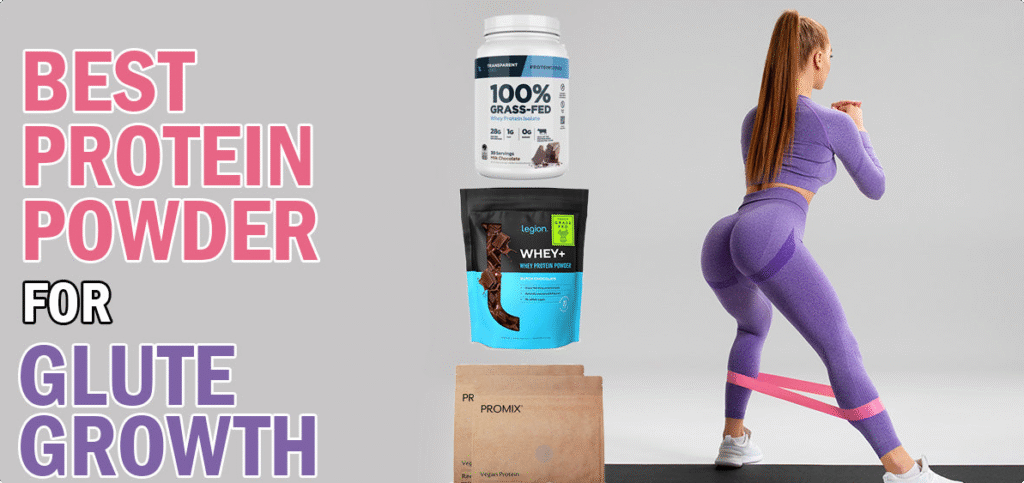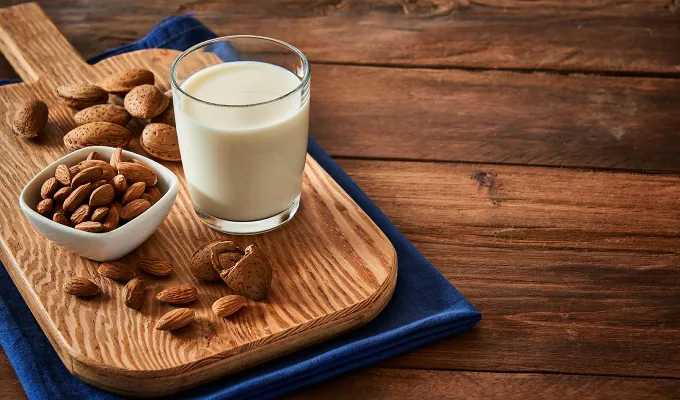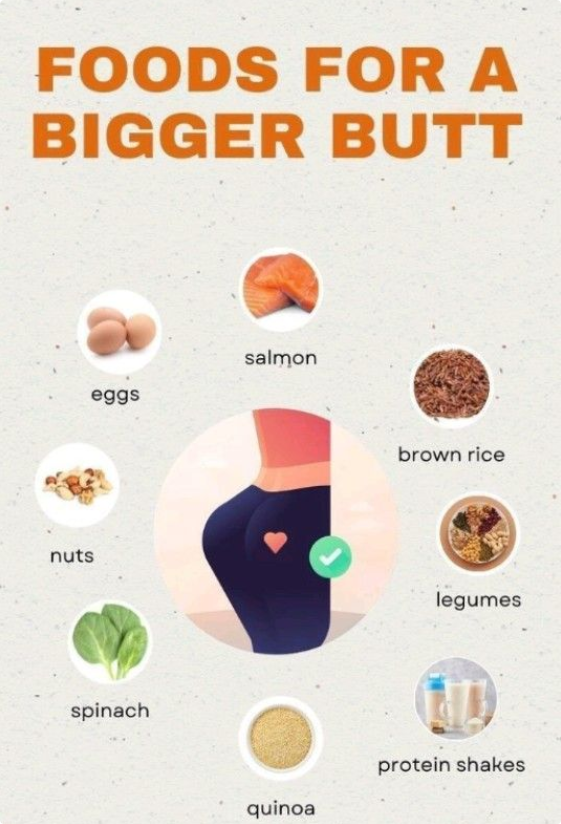Protein powders are a popular supplement among individuals looking to enhance their glute growth. These powders are a convenient way to increase protein intake, which is crucial for muscle growth and repair. When combined with a proper diet and exercise routine, protein powders can help individuals achieve their glute growth goals faster.
There are various types of protein powders available, including whey, casein, and plant-based options like pea or soy protein. Each type has its own unique benefits and may be more suitable for different individuals depending on their dietary preferences and goals. In addition to aiding in muscle growth, protein powders can also help with muscle recovery after intense workouts. Consuming protein shortly after a workout can help promote muscle repair and reduce muscle soreness.
It’s important to note that protein powders should not be used as a substitute for whole foods in your diet. While they can be a convenient way to increase protein intake, it’s essential to maintain a balanced diet that includes a variety of nutrient-dense foods. When selecting a protein powder for glute growth, consider factors such as flavor preferences, dietary restrictions, and budget.
It’s also a good idea to consult with a healthcare professional or nutritionist before adding any new supplements to your routine. In conclusion, protein powders can be a valuable tool for individuals looking to enhance their glute growth. By incorporating them into a well-rounded fitness and nutrition plan, individuals can effectively support their muscle-building goals and achieve the results they desire.
Importance of Protein for Muscle Growth
Protein is essential for muscle growth because it contains amino acids, which are the building blocks of muscle tissue. When you consume protein, your body breaks it down into amino acids, which are then used to repair and build new muscle fibers. Without an adequate intake of protein, your muscles will not be able to recover properly after exercise, leading to decreased muscle growth. In addition to repairing and building muscle tissue, protein also plays a crucial role in supporting overall muscle function.
Proteins are involved in countless metabolic processes within the body, including energy production, enzyme production, and hormone regulation. Without enough protein, your muscles may not be able to function optimally, leading to decreased performance and strength. It’s important to consume protein at strategic times throughout the day to support muscle growth. Consuming protein before and after exercise can help optimize muscle recovery and promote muscle growth. Additionally, spreading protein intake evenly throughout the day can help ensure that your muscles have a steady supply of amino acids for growth and repair. Protein requirements vary depending on factors such as age, sex, weight, and activity level.
However, a general guideline for muscle growth is to consume around 1.2-2.0 grams of protein per kilogram of body weight per day. This can typically be met through a combination of whole food sources such as meat, fish, eggs, dairy, and plant-based proteins like legumes, nuts, and seeds.
In conclusion, protein is crucial for muscle growth because it provides the necessary amino acids for repairing and building muscle tissue, supports overall muscle function, and helps optimize muscle recovery. By meeting your daily protein needs through a balanced diet, you can support your muscle growth goals and improve your overall physical performance.
Benefits of Protein Powders
Protein powders offer a convenient and efficient way to increase your daily protein intake, which is essential for muscle growth and repair. They are particularly beneficial for individuals aiming to enhance their glute development. Key benefits include:
- Muscle Recovery: Protein powders aid in repairing muscle tissues post-exercise, reducing soreness and accelerating recovery.
- Convenience: They provide a quick and easy source of high-quality protein, especially beneficial for those with busy lifestyles.
- Customizable Nutrition: Available in various types (whey, casein, plant-based), flavors, and formulations to suit different dietary needs and preferences.
Types of Protein Powders
Whey Protein
Benefits for Muscle Recovery
Whey protein is a popular supplement among athletes and fitness enthusiasts due to its rapid absorption rate, making it ideal for consumption before or after workouts. Additionally, whey protein is low in fat and carbohydrates, making it a lean source of high-quality protein. It can be easily added to shakes, smoothies, or even baked goods to increase their protein content. In addition to its muscle-building benefits, whey protein has also been shown to support weight loss by promoting feelings of fullness and reducing cravings. Furthermore, whey protein may help lower blood pressure, improve cardiovascular health, and enhance the body’s immune function. Overall, whey protein is a convenient and versatile protein source that can benefit individuals looking to improve their athletic performance, recover from workouts, or simply increase their protein intake.
Ideal for Post-Workout
Whey protein is also rich in branched-chain amino acids, which are crucial for muscle recovery. This type of protein is easily digested, making it the perfect choice for a quick and convenient post-workout snack. Additionally, whey protein has been shown to help reduce muscle soreness and improve exercise performance. It can also help with weight management by promoting feelings of fullness and preserving lean muscle mass. When combined with a well-rounded diet and exercise routine, whey protein can be a powerful tool for reaching fitness goals. It is important to note that individual protein needs may vary based on factors such as weight, age, and activity level. It’s always best to consult with a healthcare provider or registered dietitian to determine the appropriate amount of protein for your specific needs. Incorporating whey protein into your post-workout routine can help you recover faster and achieve optimal results.
Casein Protein
Slow Digesting Benefits
Casein is often consumed before bed to help support muscle recovery and growth during the overnight fasting period. Additionally, casein protein can help increase feelings of fullness and satiety, making it a good option for those looking to control their appetite and manage their weight. Some studies have suggested that casein protein may also have immune-boosting properties. Casein protein is commonly found in dairy products such as milk and cheese, as well as in casein protein supplements. It is a complete protein source, meaning it contains all nine essential amino acids that the body cannot produce on its own. Athletes and individuals who engage in regular strength training often include casein protein in their diets to support muscle repair and growth. Consuming casein protein post-workout can help enhance recovery and muscle protein synthesis. It is important to note that while casein protein offers several benefits, it may not be suitable for individuals who are lactose intolerant or have dairy allergies. In these cases, plant-based protein sources such as soy, pea, or hemp protein can be used as alternatives to casein protein. Overall, casein protein is a valuable nutrient that can play a role in supporting muscle health, recovery, and overall well-being.
Best for Nighttime Use
In addition, casein protein is known for its slow digestion rate, which means it can provide muscle-building nutrients for several hours while you sleep. This sustained release of amino acids helps prevent muscle breakdown and promotes optimal muscle repair and growth. Studies have shown that consuming casein protein before bed can help increase muscle protein synthesis and improve overall muscle mass. Additionally, casein protein may also help with weight management by promoting feelings of fullness and reducing late-night cravings. It can also help maintain metabolism and prevent muscle loss during periods of fasting, such as overnight. Overall, incorporating casein protein into your bedtime routine can be a simple and effective way to support your fitness goals and optimize your muscle recovery. Remember to pair it with a balanced diet and regular exercise for best results.
Plant-Based Proteins
1. Pea Protein
Pea protein is a high-quality, easily digestible plant-based protein rich in essential amino acids, particularly arginine, which supports muscle growth.
2. Rice Protein
Rice protein is hypoallergenic and easily digestible, making it suitable for individuals with dietary sensitivities. While slightly lower in lysine, it can be combined with other plant proteins to create a complete amino acid profile.
3. Hemp Protein
Hemp protein offers a balanced ratio of omega-3 and omega-6 fatty acids, along with fiber and essential amino acids, supporting overall health and muscle development.
Factors to Consider When Choosing Protein Powder
A. Protein Content per Serving
Aim for protein powders that provide at least 20 grams of protein per serving to effectively support muscle growth and recovery.
B. Amino Acid Profile
Opt for protein powders with a complete amino acid profile, ensuring they contain all nine essential amino acids necessary for muscle synthesis.
C. Sugar and Carb Content
Be mindful of added sugars and carbohydrates, especially if you’re monitoring caloric intake. Choose products with minimal added sugars to avoid unnecessary calorie consumption.
D. Flavor and Mixability
Select flavors you enjoy and powders that mix well with your preferred liquids to ensure consistent use and satisfaction.
E. Dietary Restrictions and Allergies
Consider any dietary restrictions or allergies, such as lactose intolerance or gluten sensitivity, and choose protein powders that accommodate these needs.
Top Protein Powders for Glute Growth Reviews and Comparisons
1. Optimum Nutrition Gold Standard 100% Whey Protein
Features: 24g of protein per serving, 5.5g of BCAAs, low in fat and sugar.Eastern Idaho Regional Medical Center+78Walmart.com+78Walmart.com+78
Benefits: Supports muscle recovery and growth; fast-absorbing, making it ideal for post-workout consumption.
2. Dymatize Elite Casein Protein Powder
Features: 25g of protein per serving, slow-digesting micellar casein.
Benefits: Provides sustained amino acid release, making it suitable for nighttime use to support overnight muscle recovery.
3. Orgain Organic Plant-Based Protein Powder
Features: 21g of protein per serving, sourced from pea, brown rice, and chia seeds; USDA organic, gluten-free, and non-GMO.
Benefits: Ideal for those seeking a plant-based protein option; supports muscle growth and overall health.
How to Incorporate Protein Powders into Your Diet
Timing Your Protein Intake
Consuming protein powders around your workout sessions can enhance muscle recovery and growth. Aim to intake protein within 30 minutes post-exercise. Protein powders are convenient and easily digestible, making them an ideal option for a quick and efficient source of protein. They can help promote muscle protein synthesis, especially when combined with carbohydrates.
Some popular types of protein powders include whey, casein, and plant-based options like pea, rice, and soy protein. It is important to choose a protein powder that fits your dietary preferences and goals. Additionally, protein powders can be mixed with water, milk, or blended into smoothies for a tasty and convenient post-workout snack.
Be sure to also focus on consuming whole food sources of protein throughout the day to meet your overall protein needs. Remember to stay hydrated and listen to your body’s hunger cues to ensure proper recovery and fueling for your workouts. Regular consumption of protein powders as part of a balanced diet and exercise routine can contribute to improved performance and results.
Suggested Recipes and Serving Ideas
1. Protein Shakes
Blend protein powder with water, milk, or plant-based milk alternatives, and add fruits or nut butters for added flavor and nutrients.
2. Protein Oatmeal
Stir protein powder into cooked oatmeal for a protein-rich breakfast option.
3. Protein Pancakes
Incorporate protein powder into pancake batter to create a high-protein meal that supports muscle growth.
C. Combining Protein with Other Nutrients
Pair protein powders with carbohydrates and healthy fats to create balanced meals that support overall nutrition and muscle development.





